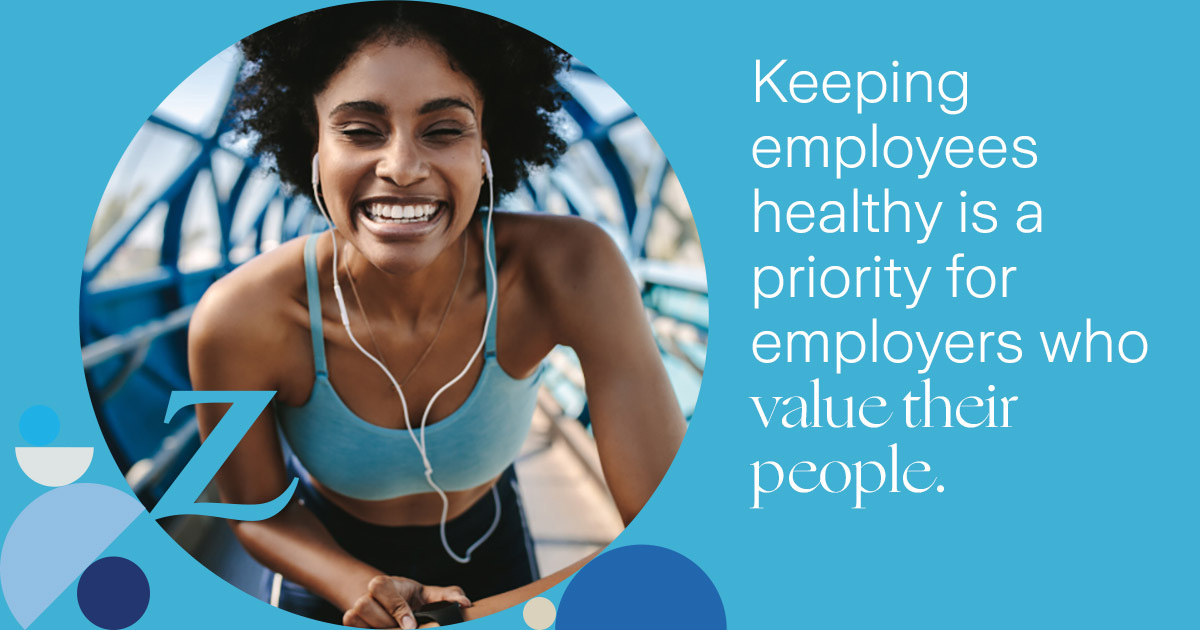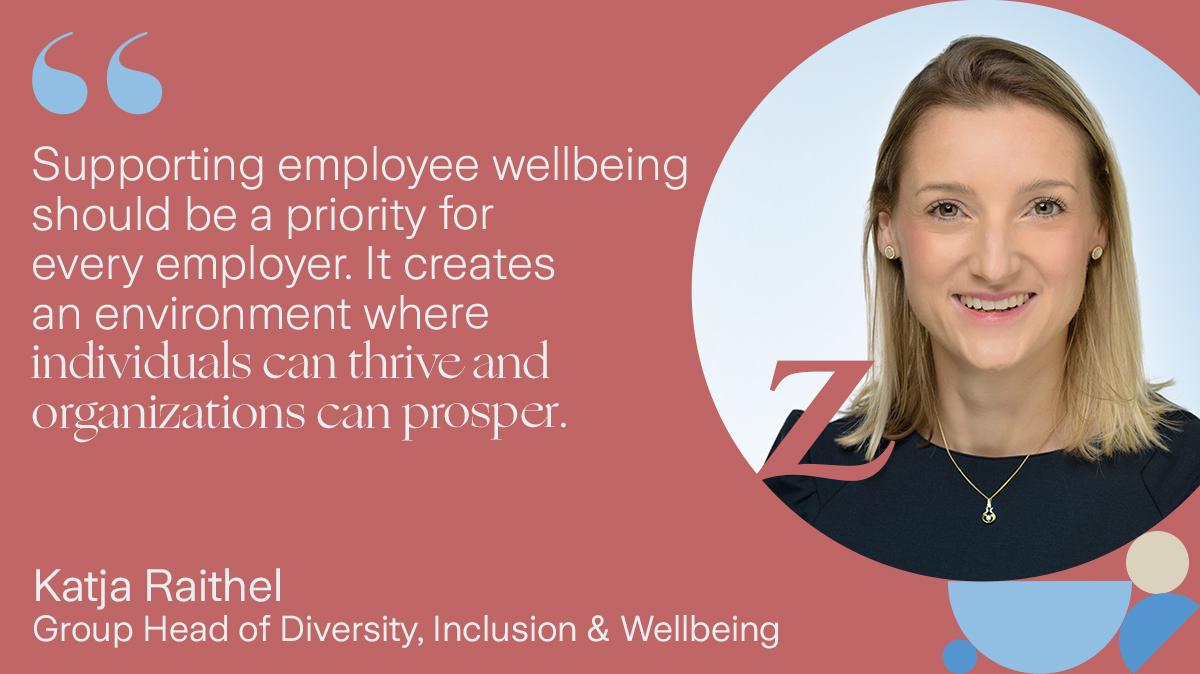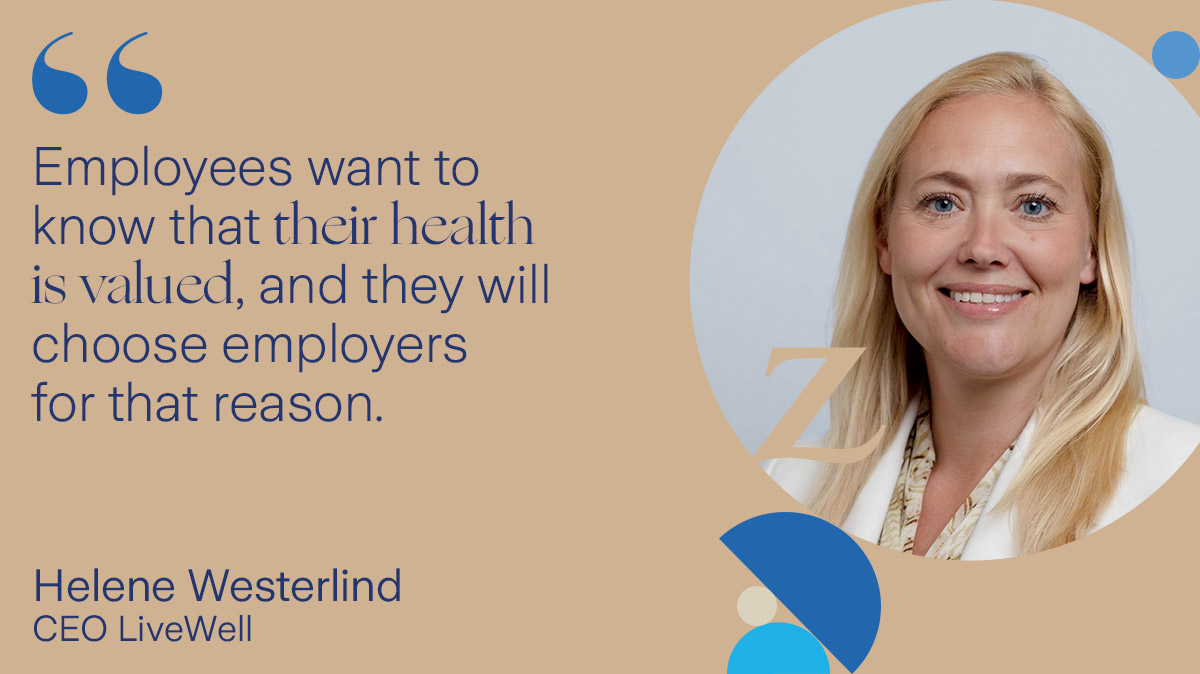Why companies are playing a bigger role in wellbeing
Future of workArticleFebruary 4, 2022
Keeping employees healthy in a holistic way is a priority for employers who value their people, and they are aware that it can be costly in a variety of ways if they fail to do so.
Companies are increasingly taking responsibility for the health and wellbeing of their people, recognizing that employees are their most valuable asset and have a right to expect that they will be cared for, experts agree.
“The days of considering people as just a workforce are over, and their physical, mental and financial health should be supported in a holistic way,” says Helene Westerlind, CEO of Zurich LiveWell, which offers digital health and wellbeing services.
Dr. Katja Raithel, Group Head of Diversity, Inclusion & Wellbeing, at Zurich Insurance Group (Zurich) agrees. “Supporting employee wellbeing should be a priority for every employer – it’s good for people and the organization”, she says. “It can help prevent stress and create an environment where individuals can thrive and organizations can prosper.”
As employers take a greater role in the health and emotional wellbeing of their people, employees say they welcome and expect such support. Research for the report “Shaping a brighter future of work: Global and local market insights,” produced by Zurich and the Smith School of Enterprise and the Environment at the University of Oxford, revealed that employees around the world are looking to their employers to participate more in their overall wellbeing. Employers have a high “duty of care”, particularly in the wake of a global pandemic that has reshaped the world of work, those interviewed for the report noted.

At a time when the workplace continues to be shaped by changes brought by a global pandemic, one thing remains clear, according to Raithel: “People need more support and they are turning to their employers for help.”
In providing that help, employers also help themselves. “It has a massive impact on business and the ability to drive it forward,” Westerlind says. “Employees want to know that their health is valued, and they will choose employers for that reason. If you want to attract and retain talent, you should show that you care about them as individuals.”
Keep it simple
Health solutions don’t have to be over-complicated. Solutions that focus on the foundational aspects of good health, such as diet, exercise and sleep can have a positive effect.
But a well-rounded and employee wellbeing program takes time to develop, according to Raithel. “The organization needs to evaluate its priorities and resources before a long-term plan can be put in place,” she says. “As the workplace continues to evolve, we will see innovative new approaches to health and wellbeing. Providing support through human interaction and technology will reduce employee stress and anxiety, ultimately creating a more positive work culture for everyone.”

The need to support employee health and wellbeing is easy to recognize when considering – as a 2020 report by Lyra Health and the National Alliance of Healthcare Purchaser Coalitions points out – that mental health conditions alone account for a staggering 217 million days of lost work annually. In the same study a year earlier, employers said that 40 percent of their employees were battling burnout, a problem that has become harder to spot as remote working has become common during the pandemic.
“We know that happier people are more productive,” Westerlind says. “Anxiety and depression have a significant economic impact, costing the global economy as much as $1 trillion per year in lost productivity. Supporting your people to help them be at their best is just good business sense.”
And it isn’t just absenteeism that hurts companies. “Presenteeism is the act of being at work but not working and it carries a big cost in lost productivity”, Raithel explains. “Even though the estimated cost of presenteeism is huge, it does not receive the same level of scrutiny among employers preoccupied with controlling the direct costs of poor employee health.”

The COVID-19 effect
Stress and anxiety were employee health challenges before the pandemic arrived, but lockdowns and remote working arrangements added to those pressures, Raithel says. “It has affected family relationships, mental and physical health. As employees faced new challenges put forth by the global crisis, they’ve become more fragile and vulnerable. And, if they are to remain healthy and productive, they will need as much support as possible from their employers.”
The COVID-19 pandemic has been indiscriminate, creating anxiety and uncertainty among employees and their families, regardless of where they live, the work they do or which generation they were born into, she says. “But it doesn’t affect everyone in the same way, and that is why there must be creative, holistic and personalized solutions to this continuing health crisis.”





